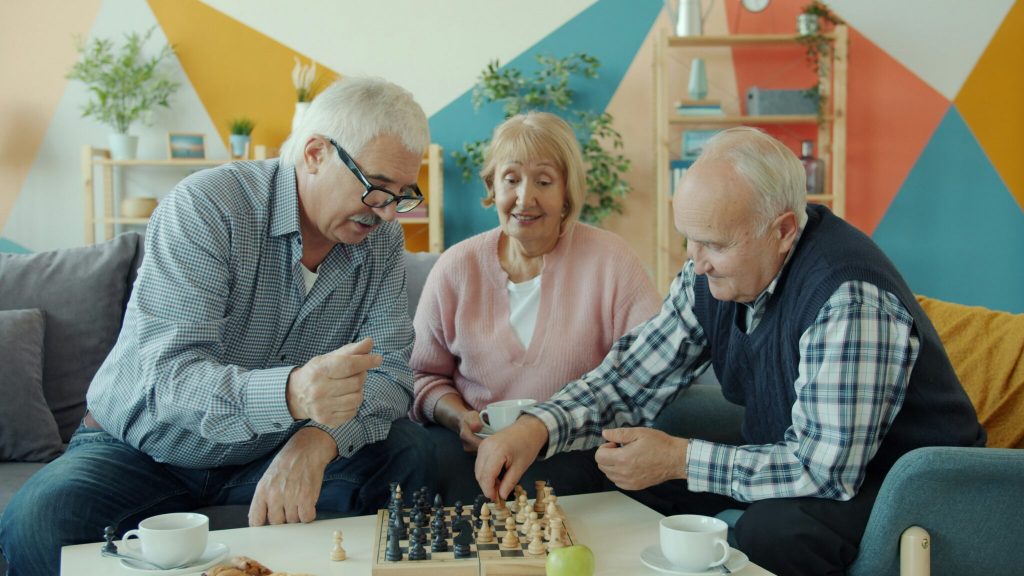
New Study Shows That Having a Life Purpose May Reduce Dementia Risk
Having a sense of purpose in life is not only personally gratifying or rewarding. It appears that it can also lower the risk of dementia, according to recent findings published in the American Journal of Geriatric Psychiatry.
Carried out by researchers at the University of California Davis, the new study tracked nearly 14,000 adults aged 45 and older over a period of up to 15 years. The participants all exhibited normal cognitive functioning at the onset of the survey, which began in 2006 and was completed in 2020 as part of the Health and Retirement study conducted by the University of Michigan. The research team ultimately discovered that individuals who reported a heightened sense of purpose were approximately 28% less likely to develop cognitive impairment, including dementia, across different genders and various racial and ethnic groups. Even after adjusting for education, depression, and the APOE4 gene, a known risk factor for Alzheimer’s, the protective effect remained significant, according to the study.
“Our findings demonstrate that having a sense of purpose aids in keeping the brain resilient as one ages,” Aliza Wingo, the senior author and professor in the UC Davis Department of Psychiatry and Behavioral Sciences, stated. “Even for those with a genetic predisposition to Alzheimer’s disease, a sense of purpose was associated with a later onset and a reduced likelihood of developing dementia.”
Researchers also found that individuals with a higher sense of purpose tended to experience cognitive decline at a later stage in life compared to those with a lower sense of purpose. On average, the delay in onset was modest—roughly 1.4 months over an eight-year span—but still, this statistic provides a glimmer of hope while other treatments are still under development.
“Although medications can slightly delay the symptoms of cognitive impairment in Alzheimer’s disease, they come with risks and expenses,” Nicholas C. Howard, the first author and public health researcher at UC Davis, remarked. “A sense of purpose in life is cost-free, safe, and available. It’s something individuals can cultivate through relationships, objectives, and meaningful pursuits.”
While the study’s participants were not specifically questioned about which activities they felt provided their lives with purpose, the researchers suggested a few possibilities, including mentoring and volunteering, spiritual practices, pursuing interests, acquiring new skills, caregiving, and advocacy efforts. To hint at their importance, the researchers summarized such activities with the Japanese term ikigai, meaning “that which brings value and joy to life.”
The study resonates with other recent research that similarly emphasizes the significance of “free” yet preventive measures. Earlier this year, for instance, a trial indicated that regular exercise could lower the risk of cancer patients dying by a third. Another study suggested that watching Studio Ghibli films positively affected the mental health of postdoctoral researchers. Even something as straightforward as attending cultural and artistic events can enhance overall wellbeing.
“What’s thrilling about this research is that individuals might be able to ‘think’ their way into improved health. A sense of purpose in life is something we can cultivate,” Thomas Wingo, a co-author of the study and a professor and neurologist at UC Davis Health, concluded. “It’s never too early—or too late—to start contemplating what gives your life significance.”
Sources: Having a sense of purpose may protect against dementia; Dementia risk reduced in adults with a sense of purpose, study finds; This mindset shift could cut your dementia risk by one-third, study says; Life Purpose Lowers Risk for Cognitive Impairment in a United States Population-Based Cohort
Related Articles:
– [Doctors Have Successfully Treated Huntington’s Disease for the First Time](https://mymodernmet.com/doctors-treat-huntingtons-disease-first-time/)
– [Scientists Say 30 Minutes of This Type of Exercise Is the Best Way To Improve Sleep](https://mymodernmet.com/study-exercise-improve-sleep/)
– [New Research Reveals That Our Immune Systems May Activate Just by Seeing Sick Faces](https://mymodernmet.com/new-study-brain-immune-system/)